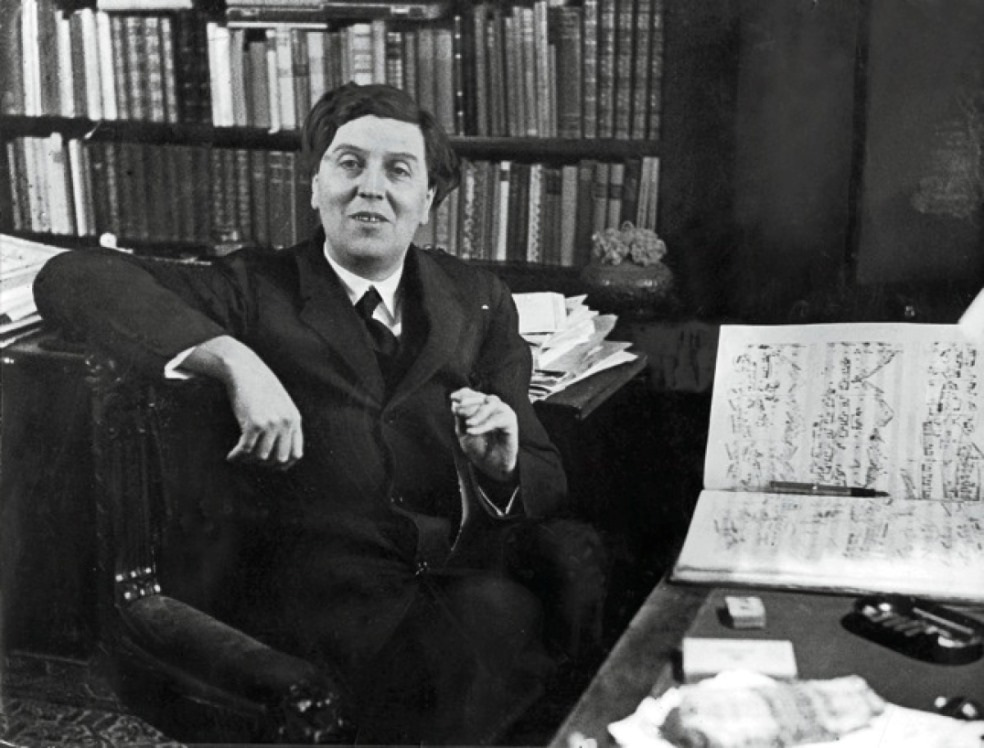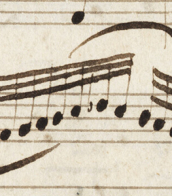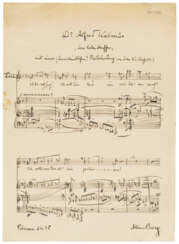Alban Berg (1885 - 1935) — Auction price

Alban Berg, full name Alban Maria Johannes Berg, was an Austrian composer, representative of expressionism in music, teacher and music critic.
A meeting with composer Arnold Schoenberg (1874-1951) in September 1904 played a decisive role in Berg's life. The latter saw talent in the young man and taught him free of charge for six years. In 1907 Berg performed his "Sonata for Piano" for the first time.
Alban Berg was very self-critical and worked on pieces for a long time. He composed orchestral music (including "Five Orchestral Songs," 1912), chamber music, songs, and two groundbreaking operas, "Wozzeck" (1925) and "Lulu" (1937). "Wozzeck," the most frequently performed theater work in the atonal idiom, is Berg's first attempt to address social issues within the framework of opera. However, its premiere turned into a scandal, with critics even calling the composer a musical fraud.
Only a few years after his death, Alban Berg was widely recognized as a composer of expression. He broke with tradition and mastered a radical technique, but at the same time he combined the old and the new and created, together with Schoenberg and Webern, the New Viennese School of the 20th century. Alban Berg was also an outstanding teacher of composition.


